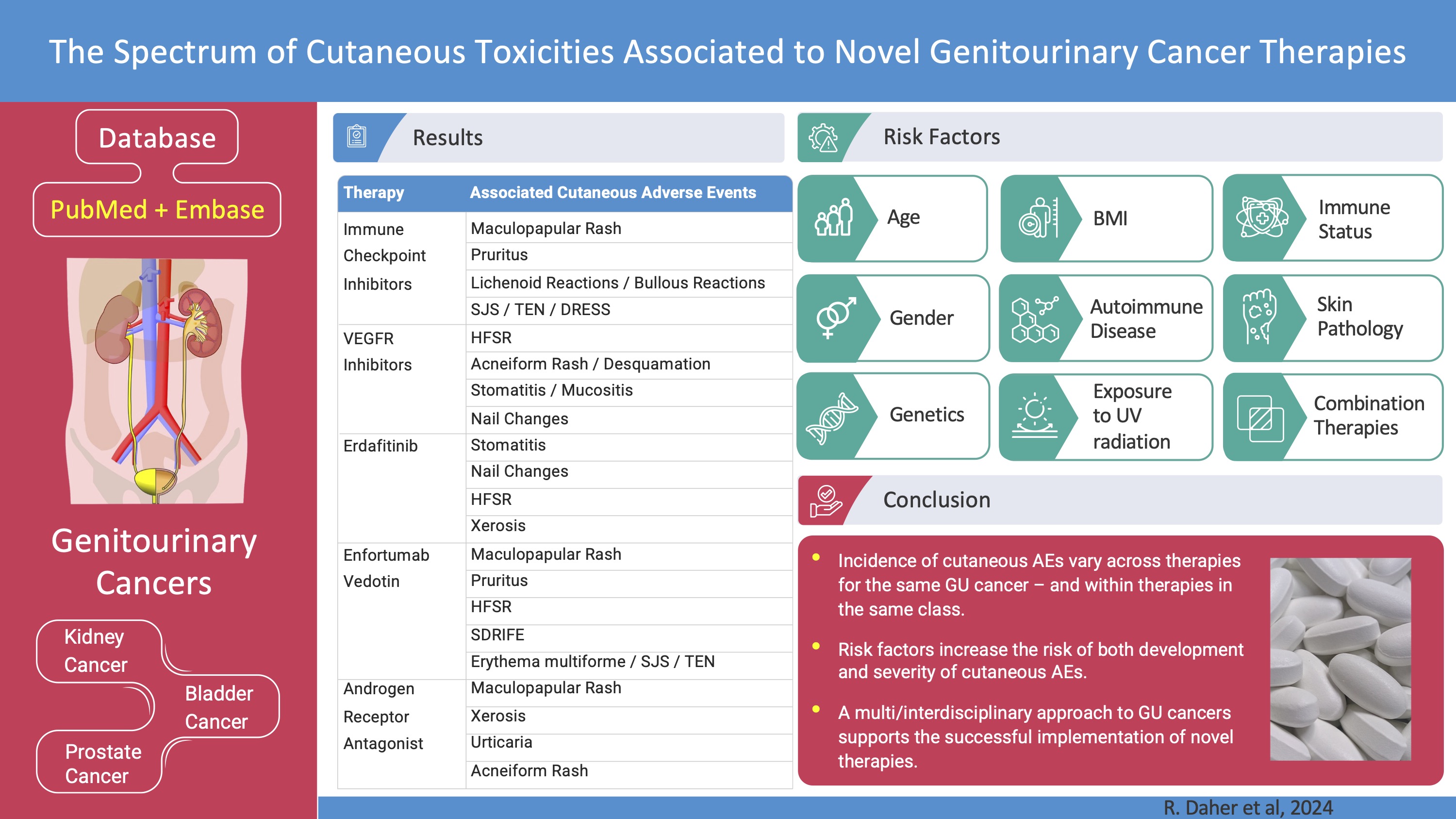The review highlights common cutaneous AEs such as maculopapular rash, pruritus, and alopecia, as well as more severe reactions like Stevens-Johnson syndrome linked to ICIs. Specific therapies have unique dermatologic manifestations—hand-foot skin reactions with antiangiogenic drugs and onycholysis with erdafitinib. Understanding these AEs' pathophysiology is crucial for effective management.
Risk factors for cutaneous AEs include age, immune status, BMI, and gender. Early recognition and a multidisciplinary approach involving oncologists, dermatologists, and pharmacists are essential for managing these toxicities, preventing dose reductions, or discontinuing vital therapies.
Interestingly, some studies indicate that cutaneous AEs might correlate with better oncology outcomes, suggesting an active immune response linked to improved progression-free survival and overall survival. This underscores the need for further research to understand this association fully.
This review calls for integrating dermatologic care into GUC treatment strategies. It serves as a vital resource for clinicians, highlighting the importance of collaborative management to enhance patient care and treatment efficacy. The insights provided bridge the gap between oncologic advancements and multidisciplinary support, offering a comprehensive understanding of the spectrum of cutaneous toxicities and their management.
Written by: Rachel Daher,1 Andrew Ruplin,2 Shilpa Gupta,3 Philippe E Spiess,4 Ashish M Kamat,5 Antonio Cigliola,6 Valentina Tateo,6 Chiara Mercinelli,6 Petros Grivas,2 Andrea Necchi7
- Vita-Salute San Raffaele University, Milan, Italy.
- University of Washington, Fred Hutchinson Cancer Center, Seattle, WA, USA.
- Department of Hematology and Oncology, Taussig Cancer Institute, Cleveland Clinic Foundation, Cleveland, OH, USA.
- Department of Genitourinary Oncology, Moffitt Cancer Center, Tampa, FL, USA.
- Department of Urology, University of Texas MD Anderson Cancer Center, Houston, TX, USA.
- Department of Medical Oncology, IRCCS Ospedale San Raffaele, Milan, Italy.
- Vita-Salute San Raffaele University, Milan, Italy; Department of Medical Oncology, IRCCS Ospedale San Raffaele, Milan, Italy.
Read the Abstract


